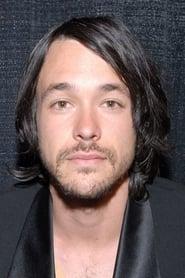Popular Movies
- Popularity
- Release Date
- Imdb
Giuseppe Andrews
Giuseppe Andrews (born Joey Andrews; April 25, 1979) is an American film actor, writer, and director known for his roles as Lex in the 1999 film Detroit Rock City, a bizarre sheriff's deputy in Cabin Fever (2002), a small role in Never Been Kissed (1999), as well as appearances in The Smashing Pumpkins videos "1979" and "Perfect". Andrews has enjoyed considerable success and notoriety for writing, directing, scoring, editing, shooting and producing a number of avante-garde films, and for directing several experimental independent movies. Description above from the Wikipedia article Giuseppe Andrews, licensed under CC-BY-SA, full list of contributors on Wikipedia.

Tv Show
Where to watch in United States